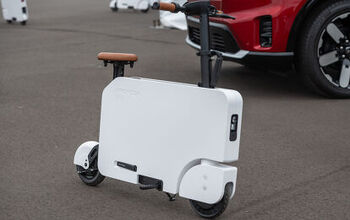Paper Treated Differently Than Smartphones in Automobile Searches
Motorists searched during a traffic stop may find their iPhone data electronically grabbed by police in ways that would not be possible or acceptable with written material. Some police departments, including the Michigan State Police, are equipped with a mobile forensics device able to extract images, videos, text messages and emails from smartphones. In some cases, the device is able to bypass password protection. Several states have been reluctant to curtail law enforcement access to this information.
In January the California Supreme Court ruled in California v. Diaz that a police officer did not need a warrant to read the text messages on a cell phone grabbed during a search incident to arrest. A Court of Appeal ruling in September ( view opinion) found a Blackberry in an automobile was nothing more than a “container” subject to warrantless examination. Golden State lawmakers recoiled at the precedent being set and moved quickly to introduce legislation requiring police to obtain judicial approval before searching a phone. The state Senate approved the measure in June by a vote of 28-9 and the state Assembly unanimously passed it in August. Governor Jerry Brown (D), however, used his veto power last month to prevent the measure from becoming law.
“I am returning Senate Bill 914 without my signature,” Brown wrote in his message to the Senate. “The courts are better suited to resolve the complex and case-specific issues relating to constitutional search-and-seizures protections.”
Nationwide, the courts do not agree on how such cases should be handled. On Tuesday, New York’s Supreme Court, Appellate Division ruled that police had no right to read a driver’s paper notebook during a search. The case began when a Suffolk County Police officer pulled over Cristobal Perez for driving while talking on his cell phone and weaving in his lane. Perez had been operating on a suspended license, so his car was impounded. Police did not wait to ask a judge for a warrant before reading the papers found in the vehicle. The state’s second-highest court saw no reason why law enforcement could not wait for a judge.
“Here, the police officer’s initial entry of the defendant’s impounded car to leaf through notebooks located in the back seat was an unjustified unconstitutional search, and the notebooks and any information gleaned therein by the officer must be suppressed,” the unanimous court ruled. “Further, the plain view doctrine does not apply, because the incriminating character of the notebooks was not immediately apparent.”
Lawmakers in the Empire State have not addressed the issue of electronic searches. A copy of the New York decision is available in an 85k PDF file at the source link below.
Source:
New York v. Perez (New York Supreme Court, Appellate Division, 10/25/2011)
[Courtesy: Thenewspaper.com]
More by The Newspaper
Latest Car Reviews
Read moreLatest Product Reviews
Read moreRecent Comments
- MaintenanceCosts Poorly packaged, oddly proportioned small CUV with an unrefined hybrid powertrain and a luxury-market price? Who wouldn't want it?
- MaintenanceCosts Who knows whether it rides or handles acceptably or whether it chews up a set of tires in 5000 miles, but we definitely know it has a "mature stance."Sounds like JUST the kind of previous owner you'd want…
- 28-Cars-Later Nissan will be very fortunate to not be in the Japanese equivalent of Chapter 11 reorganization over the next 36 months, "getting rolling" is a luxury (also, I see what you did there).
- MaintenanceCosts RAM! RAM! RAM! ...... the child in the crosswalk that you can't see over the hood of this factory-lifted beast.
- 3-On-The-Tree Yes all the Older Land Cruiser’s and samurai’s have gone up here as well. I’ve taken both vehicle ps on some pretty rough roads exploring old mine shafts etc. I bought mine right before I deployed back in 08 and got it for $4000 and also bought another that is non running for parts, got a complete engine, drive train. The mice love it unfortunately.


































Comments
Join the conversation
I wonder if a self-addressed, stamped envelope in the glove box would work in these cases? In Canada, it requires a federal warrant to open mail. If you placed your Blackberry, iPhone, radar detector, etc. in the envelope and sealed it, would that be sufficient in these cases? A clever cop made a friend of mine mail his radar detector, but he still got it back!